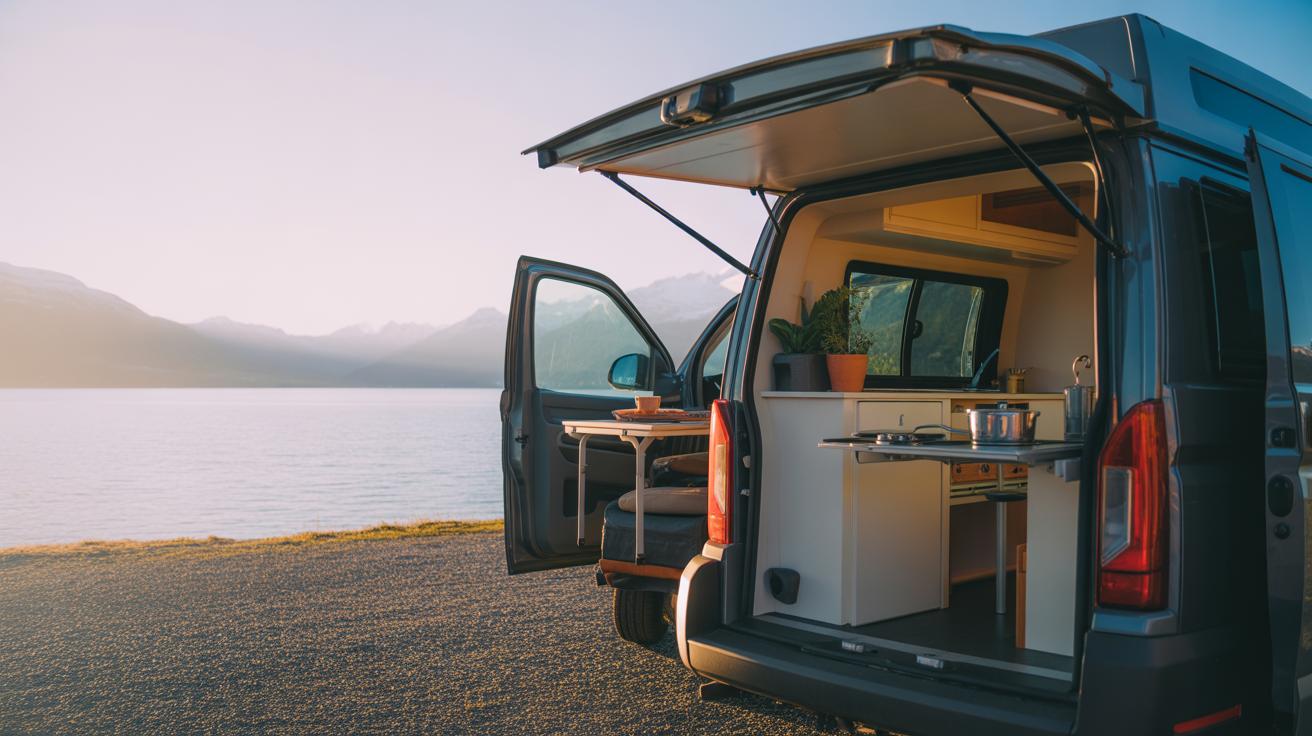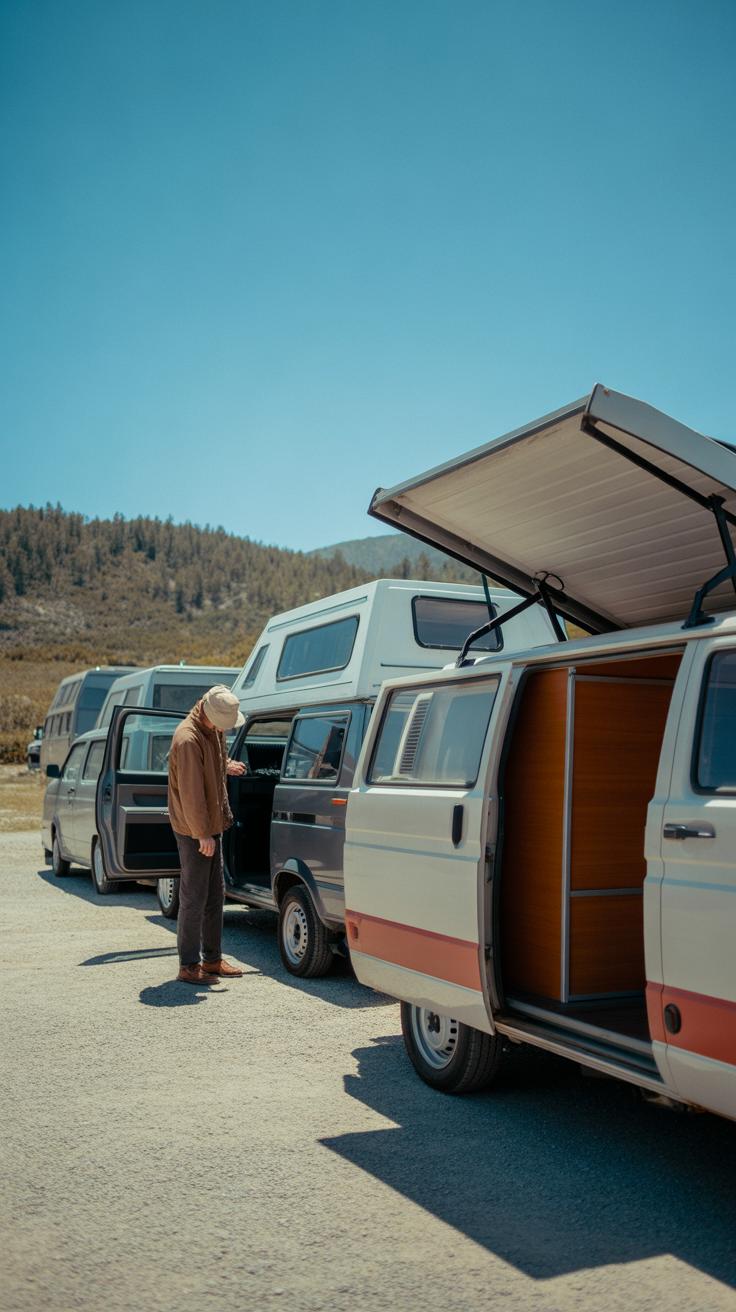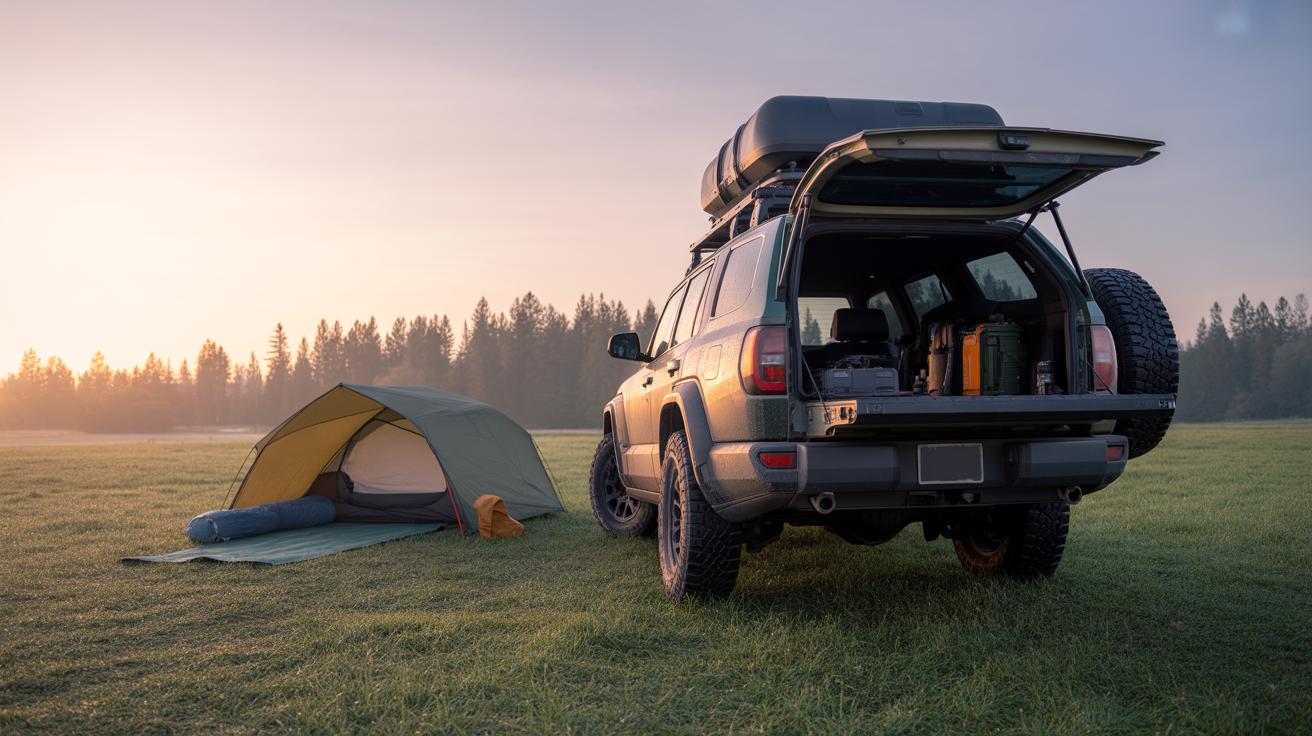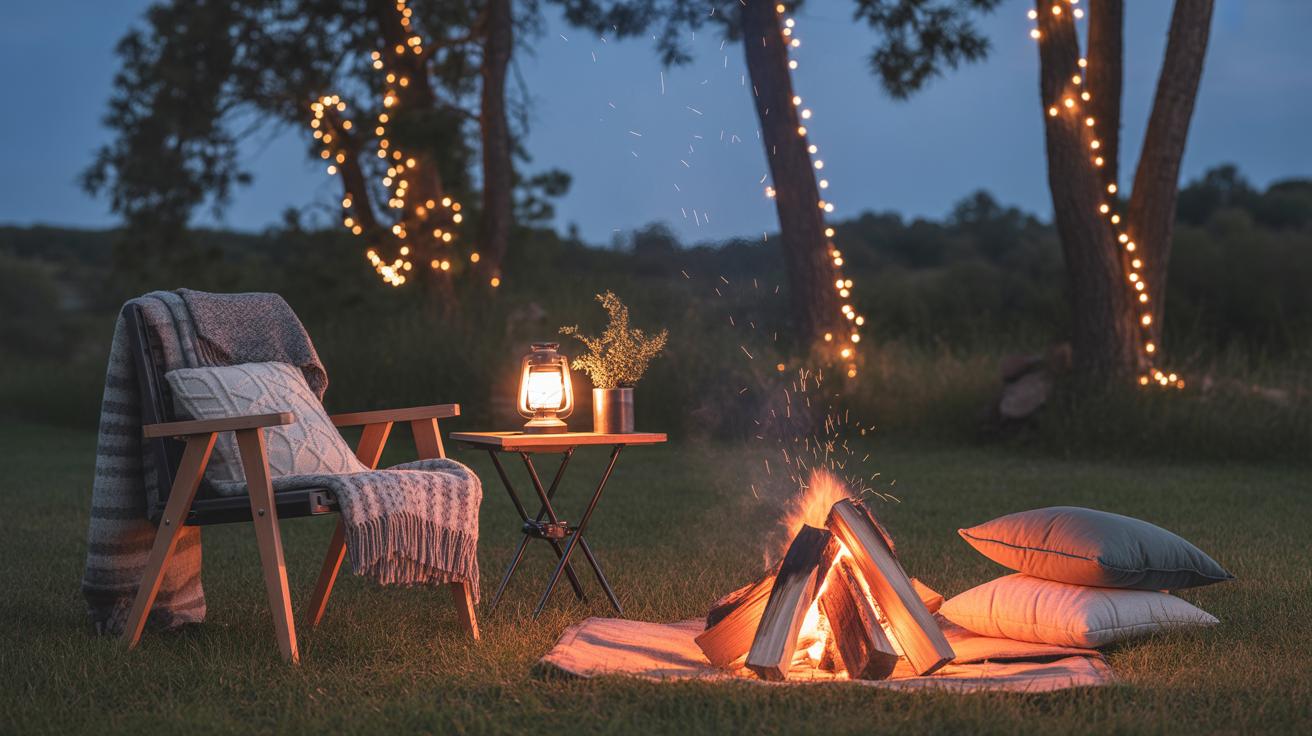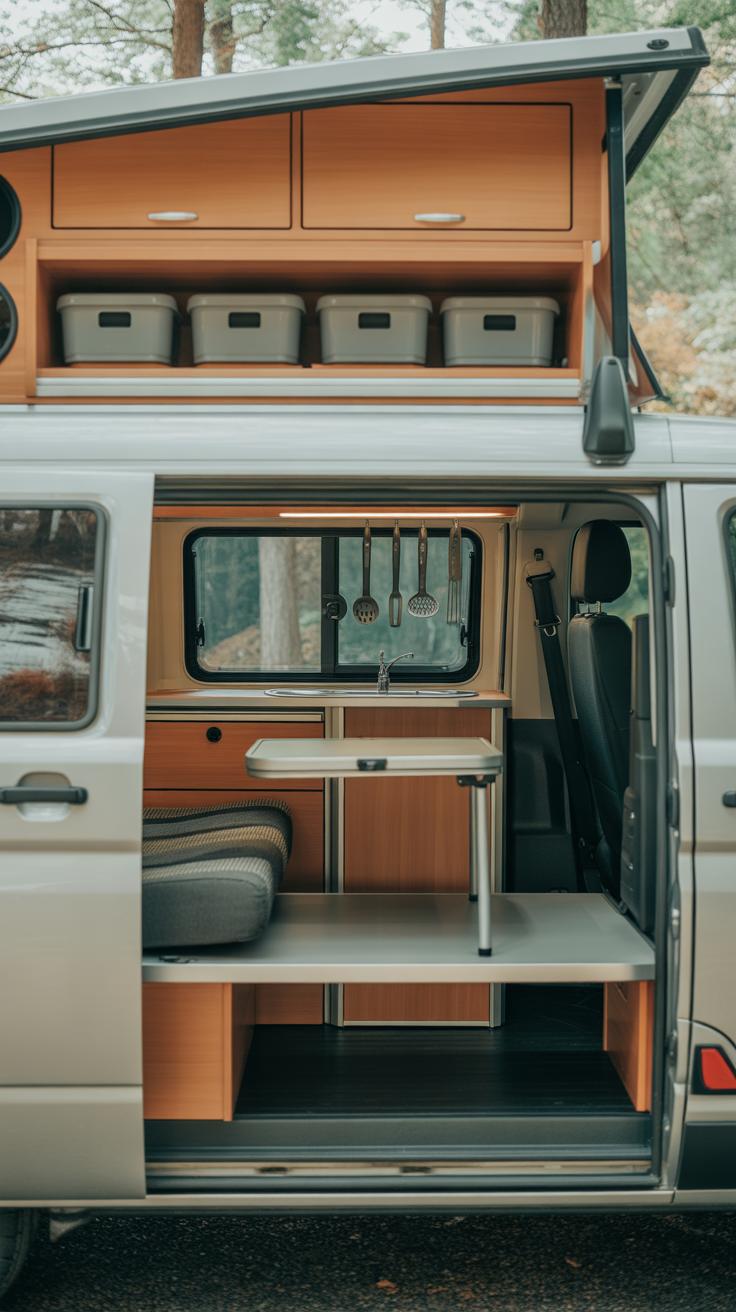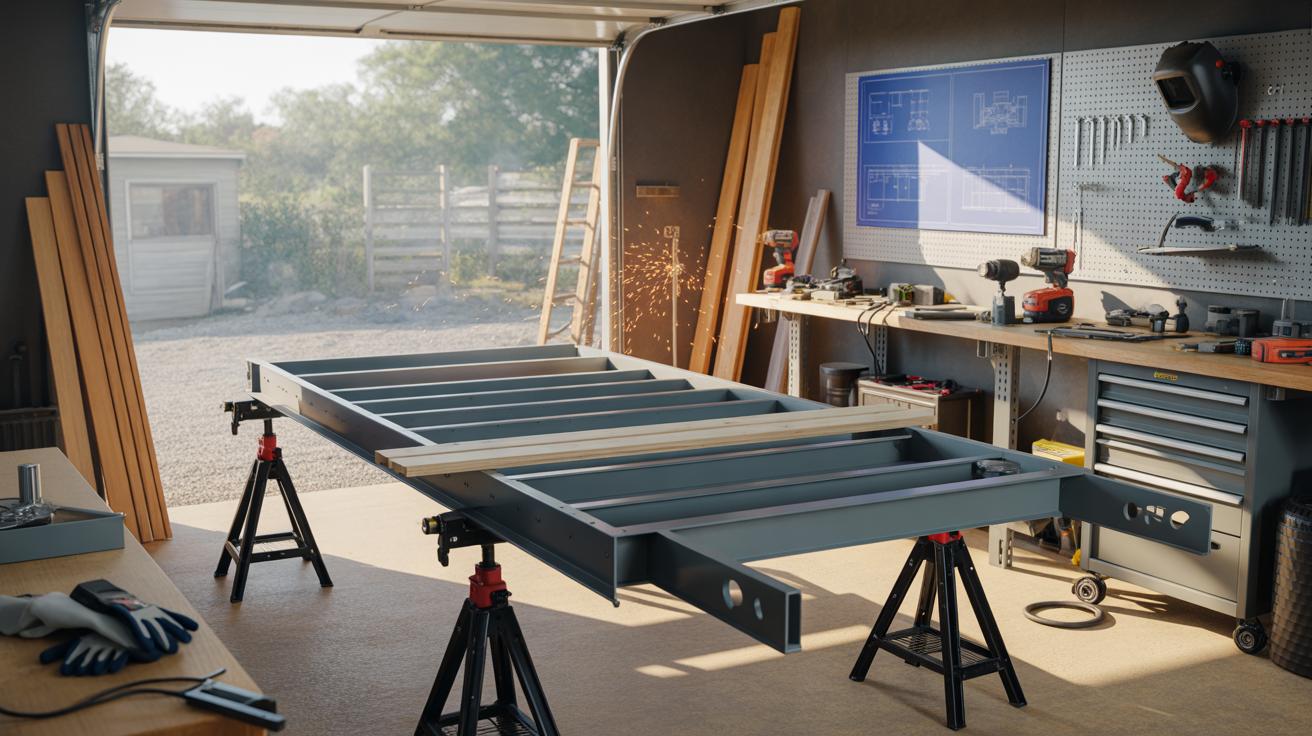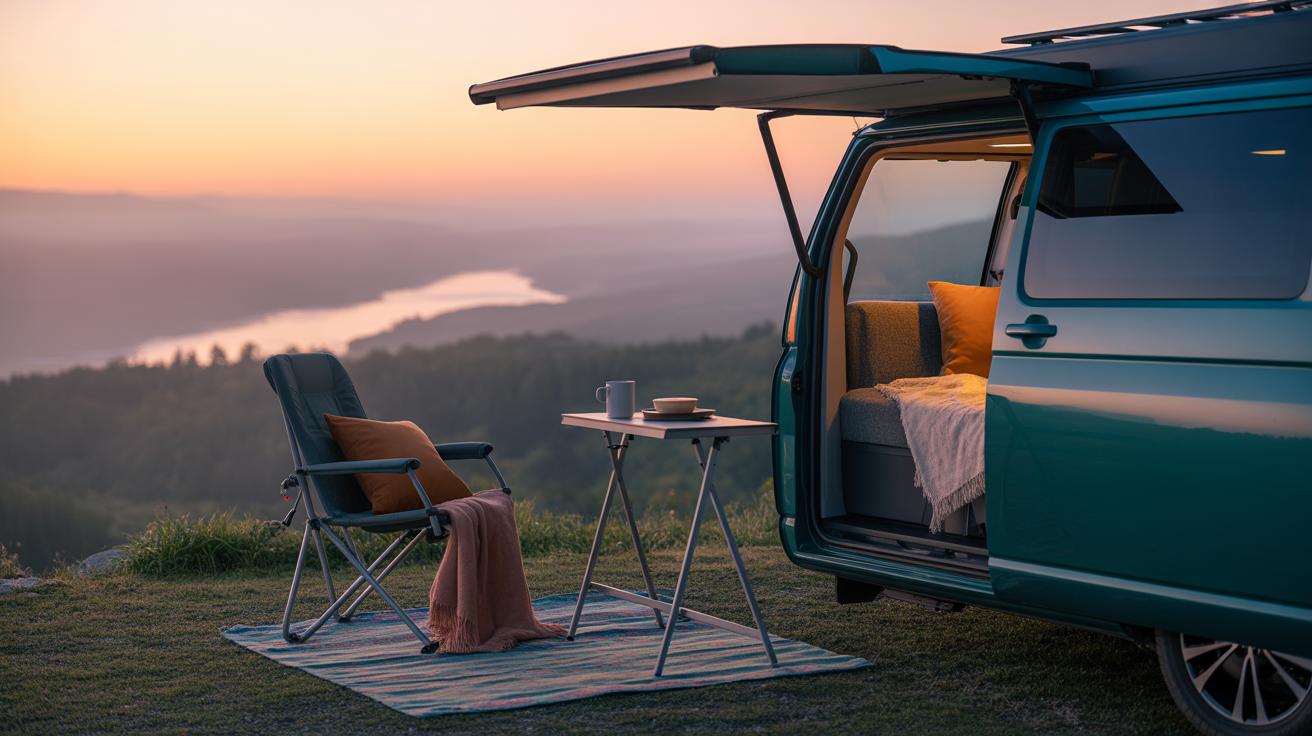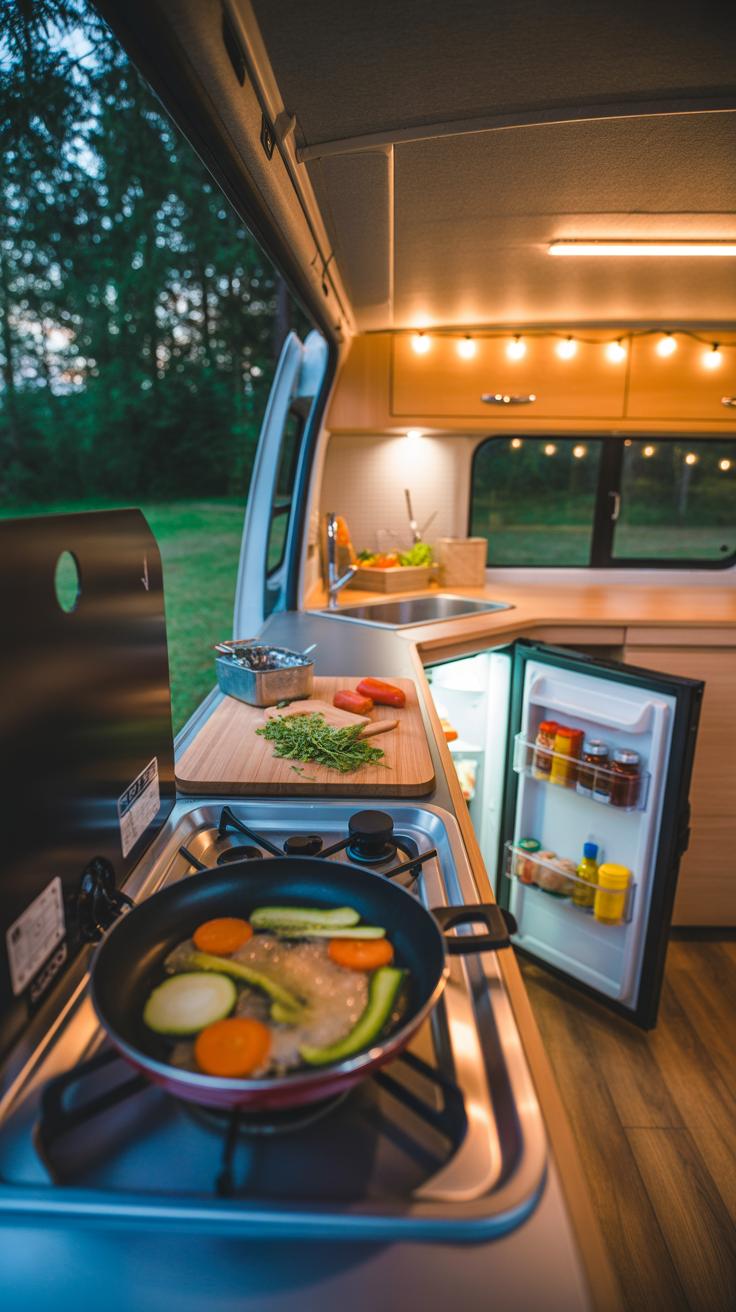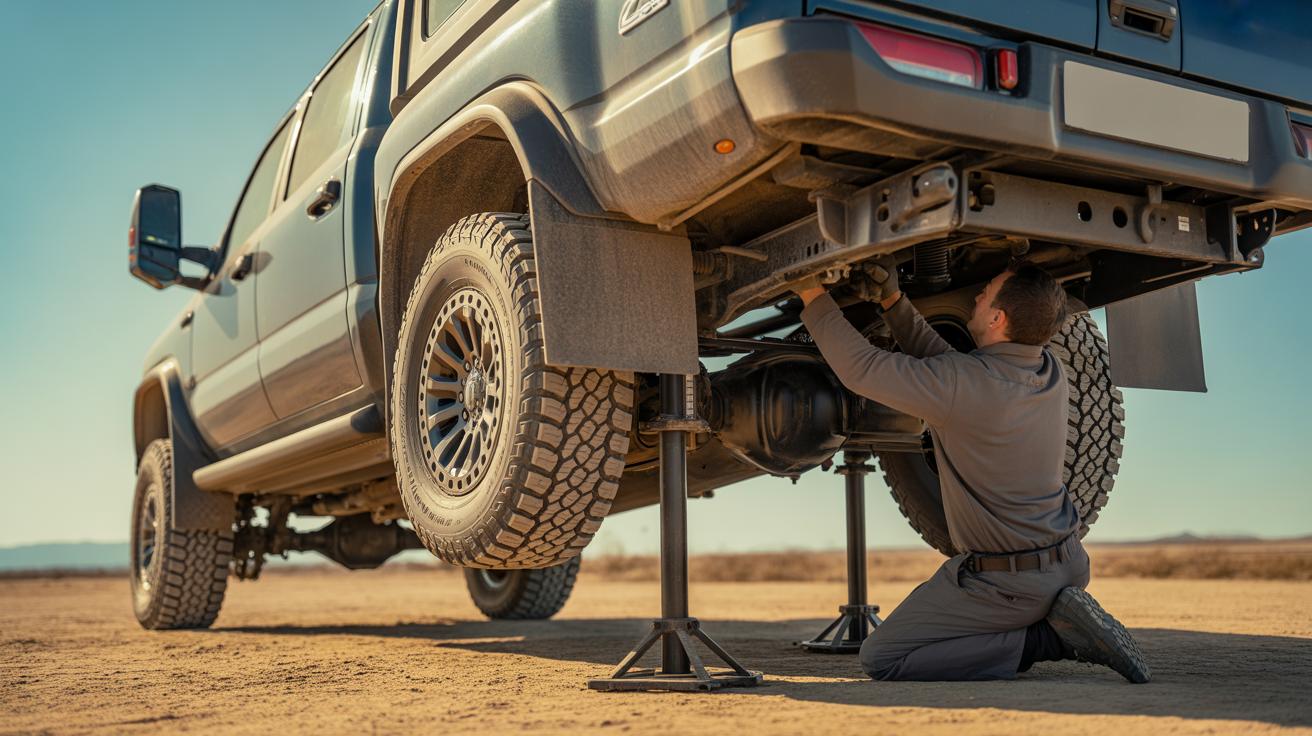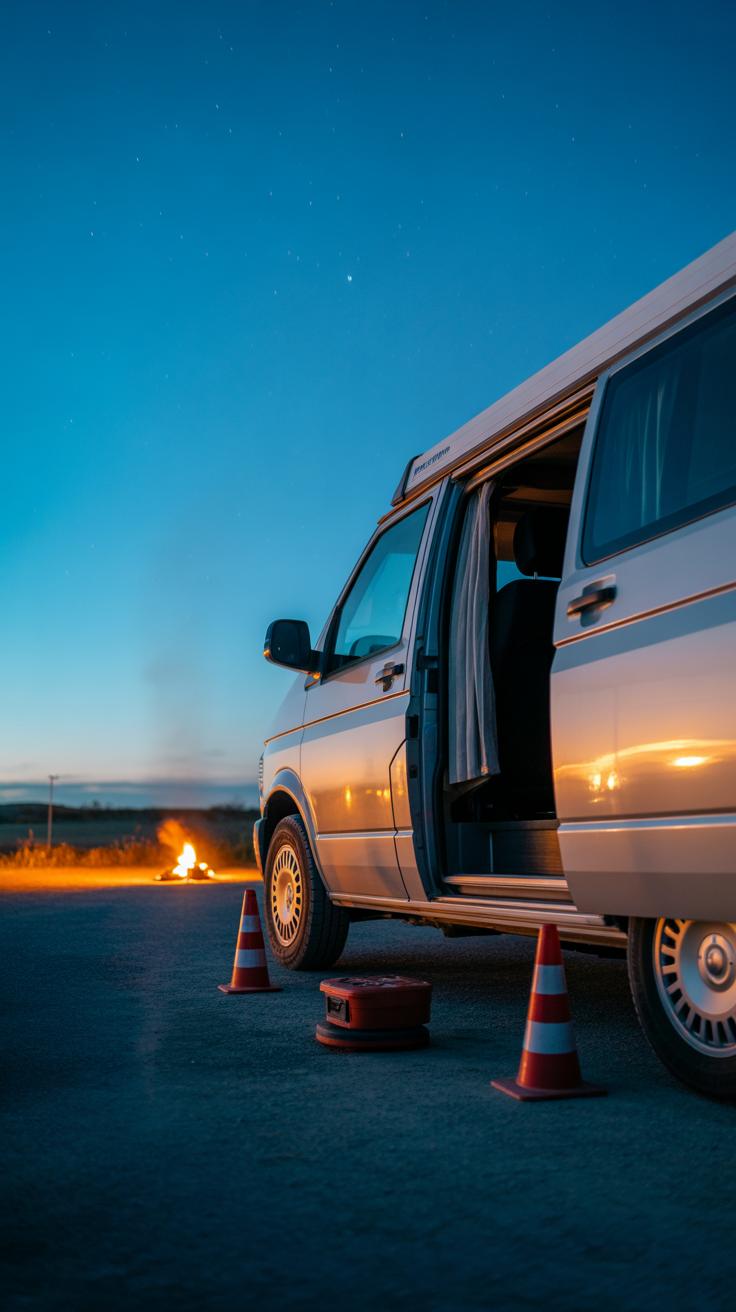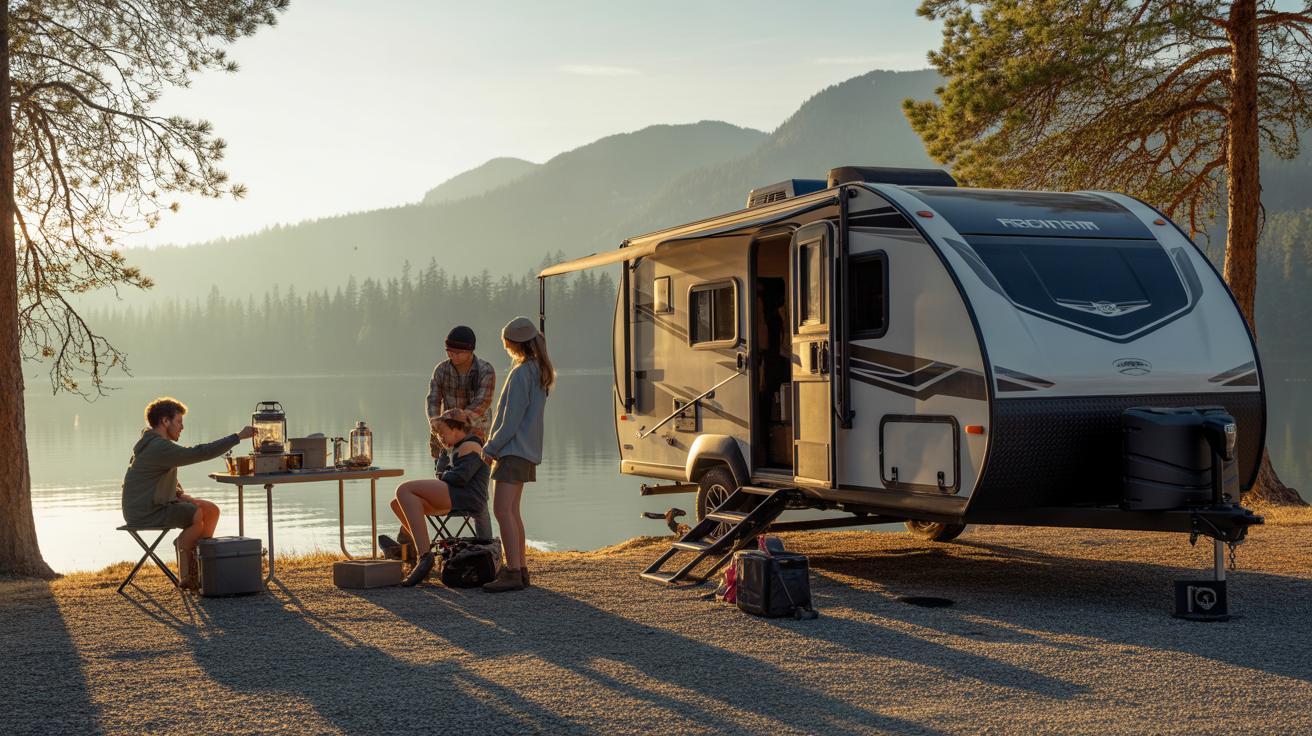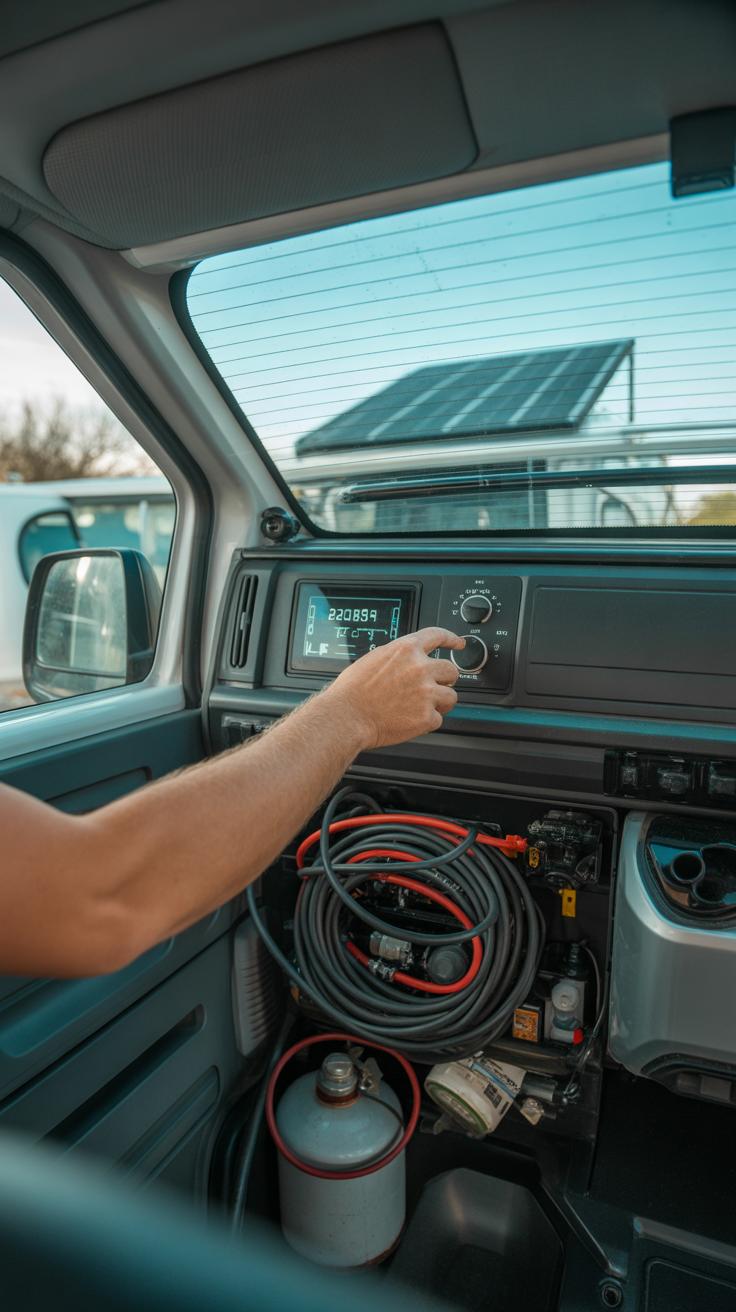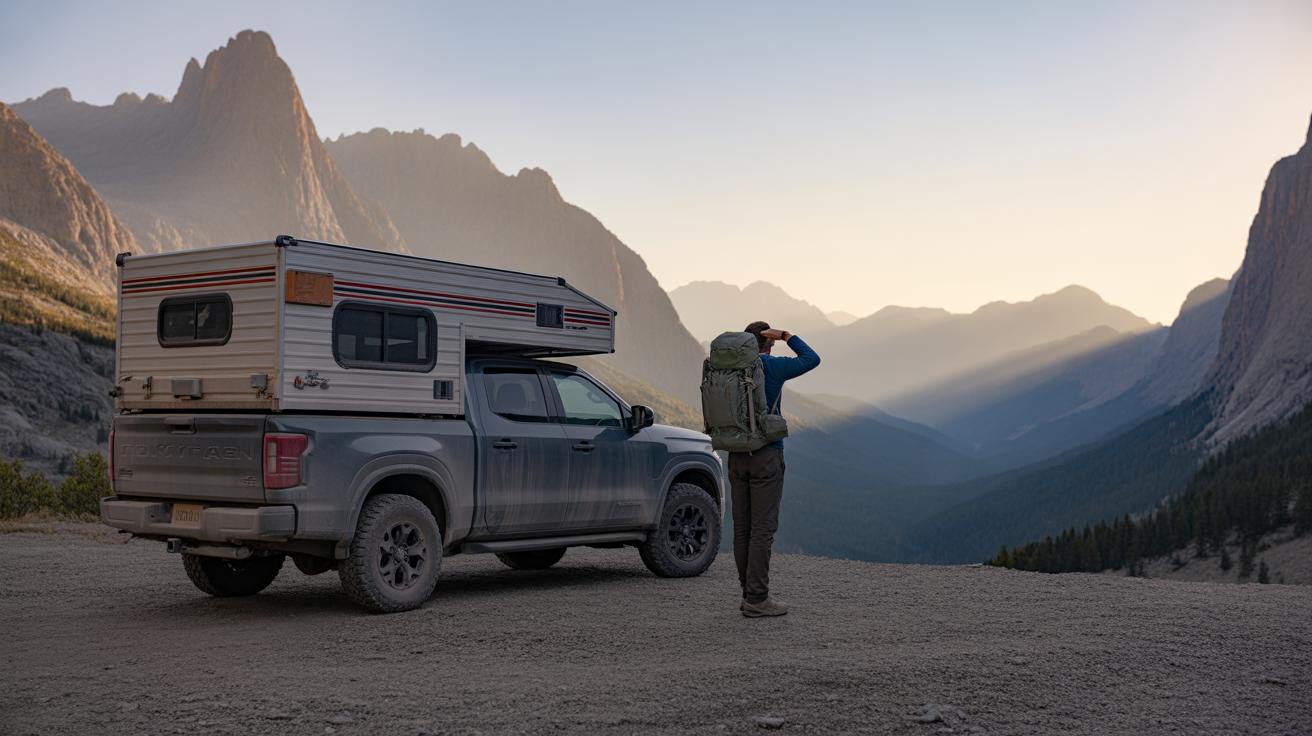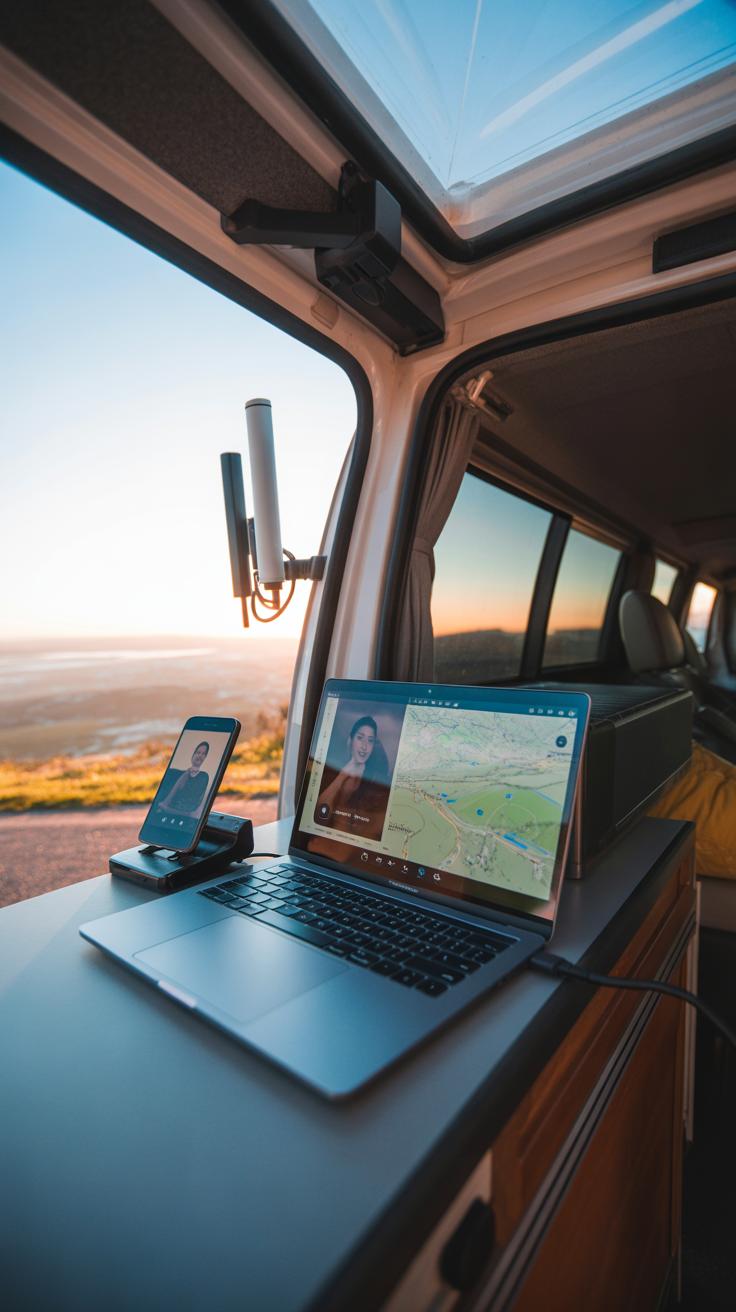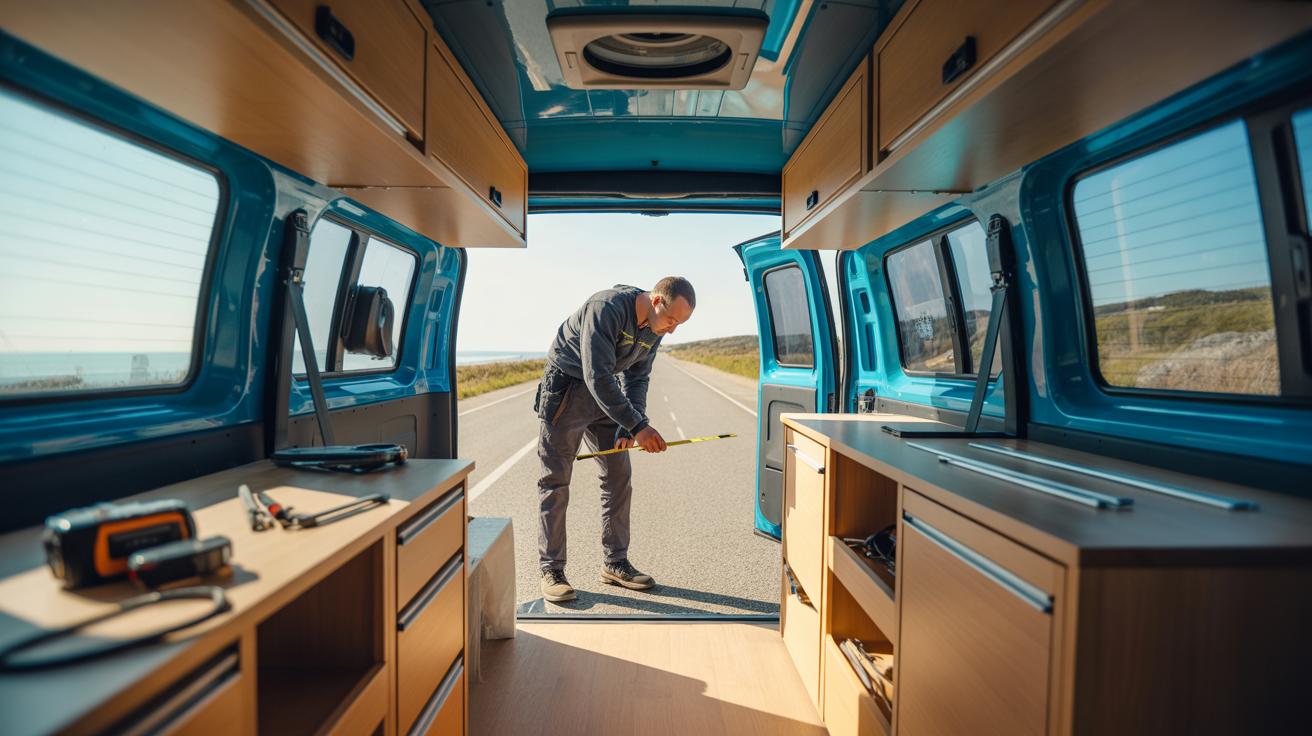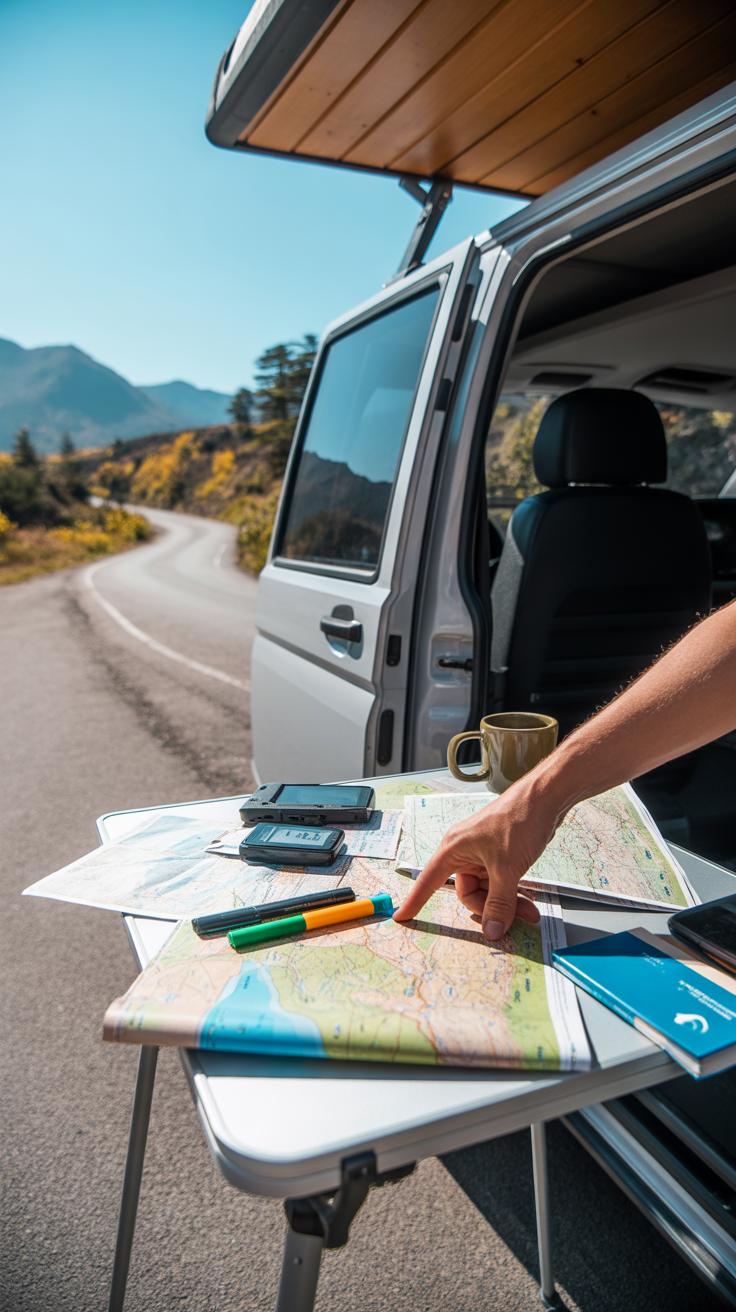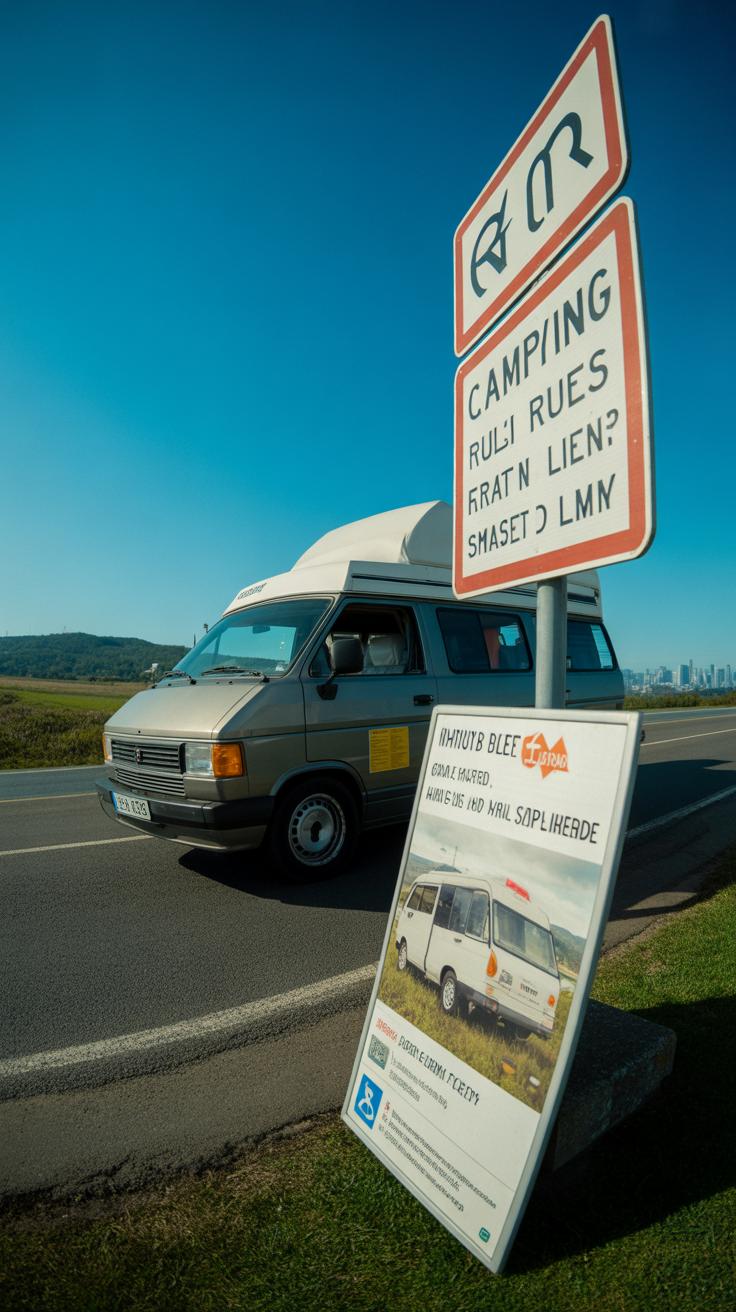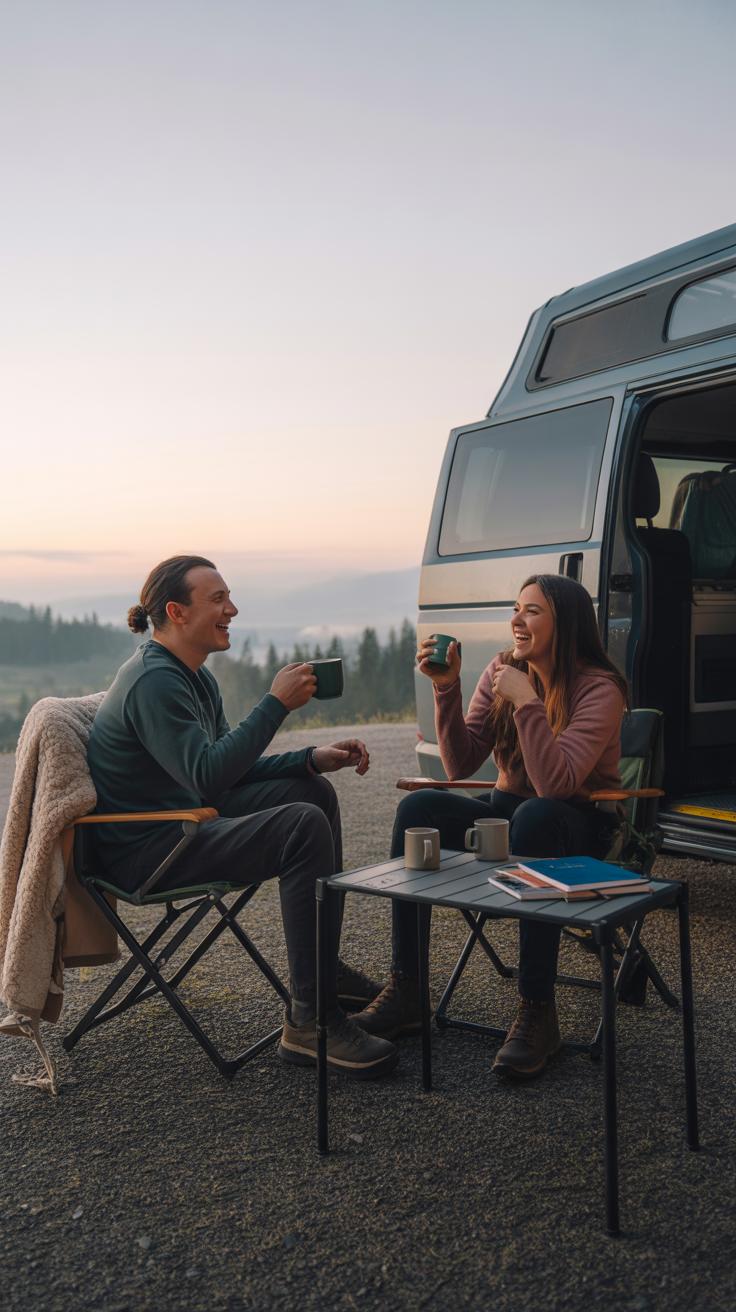Introduction
Living in a campervan offers freedom to travel and explore new places while bringing the comforts of home on the road. The lifestyle is appealing to many who seek adventure without sacrificing practicality. This article reveals insider secrets to simplify campervan life on the road, so you get the most from your journey.
From setting up your campervan for everyday living and managing space wisely, to useful tips on cooking, safety, and staying connected, we cover key strategies. Follow this guide to create a smooth, enjoyable campervan experience that fits your needs and lifestyle.
Choosing The Right Campervan For Your Needs
Picking the right campervan depends on what you expect from your travels. Size matters — too small, and you risk feeling cramped; too large, and parking or driving can become a hassle. Think about who’s coming along. Solo trips or pairs often fit well in compact vans. Families or groups might need more space and amenities.
Campervans differ from motorhomes mainly in scale and facilities. Campervans are usually smaller, built on van chassis, with basic kitchenettes and sleeping areas. Motorhomes can offer more comforts like full bathrooms and separate living spaces, but they’re bulkier and less maneuverable.
Consider what features you really want. A fridge, stove, and sleeping arrangements come standard in most; extras like showers or toilets add complexity and cost. Your travel plans shape these choices too. Off-grid adventures might demand better battery systems and water tanks, while road-heavy trips prioritize drivability and parking ease.
Types Of Campervans And What They Offer
Fixed roof campervans have a solid roof, offering better insulation and weather protection. They feel more like a small apartment but are harder to stand in fully unless tall. Pop-up roofs create more headroom when parked and improve ventilation but may not handle rough weather as well.
4×4 models shine if you want to stray from paved roads. They’re tougher, but usually cost more, and fuel consumption goes up. Converted vans—like old panel vans turned into campers—offer customization but require more work and sometimes compromise on durability or insulation.
Pick a style that suits your lifestyle. Adventurers who value rugged freedom may lean toward 4x4s or pop-ups for flexibility. Those after comfort and predictability might prefer fixed roofs or standard motorhome builds.
Setting Your Budget And Priorities
Budgeting for a campervan can feel tricky. You’ll face trade-offs between initial cost, features, and ongoing expenses like maintenance and fuel. Start by listing your priorities — what’s essential, and what can wait. For example, if you must have a bathroom onboard, expect a higher purchase price and maintenance effort.
Decide if you’d rather spend more upfront for higher quality and fewer fixes, or save initially but face potential repairs. Consider used vehicles, which often come with quirks but can offer reasonable value.
Remember, your choices shape the experience. A tighter budget might mean sacrificing space or some comforts, but a well-thought-out campervan can still make road life comfortable if it matches your core needs. Priorities often shift once you’re traveling, and flexibility matters.
Organizing Your Campervan Space Wisely
Living in a campervan means dealing with tight quarters. Every inch counts. Without smart storage, your space quickly becomes chaotic, and finding daily essentials can feel frustrating. You want to reach what you need without unpacking half your van each time.
Try to keep things accessible and visible. Think about what you use most—maybe your coffee gear or a favorite jacket—and store those in easy-to-reach spots. Use clear containers or labeled bins to avoid endless digging.
Hooks on walls for hanging items like keys or hats help use vertical space, while under-seat compartments can stash bulky gear. Look for narrow shelves or magnetic strips that hold canned goods or utensils well. At one point, I stuffed everything into drawers, but later realized sliding baskets made grabbing snacks easier on the move.
Using Multi-Functional Furniture And Storage Solutions
Furniture that pulls double duty feels like a small luxury on the road. A bench that opens to reveal storage underneath, for instance, keeps bulky items out of sight but handy. Foldable tables and collapsible chairs save space when you’re parked but want to spread out a bit.
Creating zones—sleeping, cooking, storage—can help mentally separate tasks in the confined space. It’s tempting to scatter things wherever they fit, but even something as simple as a designated corner for gear or food makes a difference. Though, honestly, living in one space means some overlap is unavoidable.
I’ve found a bed platform with built-in storage is a game-changer; it frees up a ton of floor space. Just be sure you’re okay bending a little to access what’s under — it’s not always perfect, but it beats clutter on the floor.
Maintaining Cleanliness And Order On The Road
Keeping your campervan clean feels like a full-time job if you don’t have some kind of routine. I try to do small cleanups daily—wipe surfaces, put away stray items, and take out trash before it piles up.
For managing waste, small bins with separate sections for recycling, compost, and trash help stay organized. Empty them regularly, even when it seems like a hassle; nothing builds odor faster than forgotten rubbish.
It’s easy to let clutter grow when you’re constantly moving, but limiting what you bring helps. One trick is to have a “daily unload” time—perhaps after setting up camp—to reset the space. This habit reduces that overwhelmed feeling and keeps things livable.
Essential Cooking Tips For Campervan Life
Basics Of Cooking In A Campervan Kitchen
Cooking in a campervan is a different experience compared to a regular kitchen. Space is tight, appliances are limited, and you quickly learn to value simplicity. You’ll want to focus on meals that require minimal preparation and cleanup. Think one-pot dishes or meals you can throw together with just a stove and a pot or pan. For example, pasta with canned sauce or stir-fried vegetables with rice are easy and satisfying. Since the fridge space is small, plan meals that use fresh ingredients early in the trip and non-perishables later.
Choosing Practical Cooking Equipment
When it comes to gear, think compact, light, and multi-functional. A good quality induction or propane stove with one or two burners usually does the trick. If propane sounds tricky, there are electric options—but they drain batteries fast. I’ve noticed induction stoves heat quickly but need a reliable power source, which might not always be practical. A small cast iron skillet, a medium pot, and a sharp knife later serve many purposes. Avoid bulky gadgets that take up too much space; one good cutting board can double as a serving tray. Remember to store fuel safely and always ventilate well while cooking.
Meal Planning And Simple Recipes
Planning ahead means less stress and less waste. Keep your ingredient list short and repeat meals or components to avoid clutter. For instance, oats work well for breakfast, and rice or pasta can be dinner staples. Try a simple breakfast scramble using eggs, spinach, and cheese—mix once and cook easily in one pan. For dinners, beans, canned tomatoes, and spices can transform into chili or stew. You might find yourself wondering if you should carry spices or just settle for salt and pepper—personally, I lean toward minimalism here. Planning also helps when you shop; you buy only what you’ll definitely use, and leftovers are rare.
Staying Safe And Comfortable On The Road
Living in a campervan can feel freeing, but it brings some challenges around safety and comfort. Securing your vehicle is key. Simple things like locking all doors and windows every time you step out make a big difference. Many travelers swear by alarm systems or steering wheel locks—not just to prevent theft, but also to boost peace of mind, especially at night.
Picking your parking spot carefully matters more than you might expect. Crowded rest areas or well-lit public parking spots tend to be safer, though sometimes quiet, out-of-the-way spots work best too—though they may come with risks. I’ve found that blending in nearby other campervans helps avoid unwanted attention.
Vehicle Maintenance And Emergency Preparedness
Basic maintenance isn’t glamorous but skipping it can leave you stranded at the worst times. Check your oil, tires, and brakes regularly. I like to keep a simple tool kit handy—enough to address minor issues without feeling overwhelmed. Remember, it’s not about being a mechanic, just being prepared.
Emergencies come in many forms: breakdowns, storms, or that odd noise that starts when you least expect it. Packing a roadside emergency kit—flares, first aid, jump cables—can save you time and stress. Also, having a plan for bad weather, like knowing the closest shelter or safe campground, can change everything. Do you have a safe fallback option lined up if things go wrong?
Personal Safety And Privacy Tips
Privacy on the road can be tricky. Locking doors is non-negotiable, but window covers can stop prying eyes and help with temperature. Curtains, reflective covers, or even DIY solutions like towels work surprisingly well.
Park discreetly rather than blatantly setting up camp in busy areas. Sometimes parking at a grocery store lot or near other vehicles helps reduce curiosity. Trust your gut—if a place feels off, don’t stay. Sometimes, the best safety move is simply to move on, even if it’s late or you’re tired. Your comfort comes from feeling secure first.
Managing Utilities And Resources Efficiently
Water Storage And Usage On The Go
Water feels more precious than ever when you’re on the road. Most campervans come with built-in tanks, but they rarely hold enough for long stretches out of town. Carry extra jerry cans or collapsible containers—it’s a simple way to avoid running dry. Setting up a small, removable filter for potable water can save you from constantly buying bottled water. I’ve found that rinsing dishes and hands in a basin instead of running a tap helps stretch water without much hassle.
Hygiene with limited water can feel tricky. A quick wet wipe or hand sanitizer often steps in when a full wash isn’t possible. If you set up an outdoor shower with a solar-heated bag, you’ll never regret it on warmer days. Little adjustments like these keep life comfortable without needing gallons of water.
Power Sources And Conservation Tips
Powering your life on the road depends on balancing your energy use with what your setup can deliver. Most rely on house batteries, often paired with solar panels. Solar works well if you park in sunny spots, but cloudy days test your limits. Campsite hookups provide reliable juice but restrict your freedom a bit—unless you plan carefully, it’s easy to overestimate how often you’ll get access.
Saving energy means planning. Turn off devices when not in use and use LED lighting. Unplug chargers as soon as devices are ready; they draw power even when not connected. Small things, like cooking outside or using a gas stove instead of electric, reduce battery drain. I sometimes find myself choosing routine over convenience just to keep lights on after dark.
Staying Connected While Traveling
Staying connected on the road can feel tricky, especially when you’re parked far from town or off the grid. But losing touch completely? That’s usually not what anyone wants. Picking the right internet setup depends on where you go and what you need.
Mobile hotspots offer good coverage in populated areas, but can falter in remote spots. Using SIM cards with local plans sometimes works better, especially internationally, but tracking multiple plans can get confusing. Satellite internet sounds ideal for everywhere, but it’s pricey and slower than expected. Campsites with Wi-Fi are convenient but unreliable—you might find yourself in a slow network crowd when lots of campers log on.
To dodge frustrations, consider combining options. Some travelers carry a hotspot as their main source and a backup SIM card for emergencies. It’s a bit of hassle to juggle, but it keeps you connected more often than not.
For apps and tools, navigation apps like Maps.me and Google Maps help offline, which matters when there’s no signal. Weather apps keep you ahead of storms, while messaging tools like WhatsApp or Signal let you check in whenever service appears. Using a device with dual SIM capability or a robust mobile router can make switching networks smoother.
Still, the question remains: how much connectivity do you really need? For some, occasional check-ins are enough. Others need constant access for work or safety. Figuring that out shapes your gear choice more than anything else.
Travel Planning And Route Choices
Choosing Campervan-Friendly Campsites And Stops
Finding the right spot to rest can change your entire day on the road. When looking for campervan-friendly campsites, think beyond just availability. Look for places with ample space for your van—sometimes, what counts as “big enough” can vary wildly. Some campsites welcome vans with hookups, others prefer more secluded, natural spots where you’re free to move around a bit.
Apps and websites tailored for campervans are a good start—some even include user reviews that highlight whether a spot is truly safe or just “okay.” Keep in mind, some overnight spots may have quiet hours or specific rules for vehicles like yours. Reach out if you can, or check forums for advice from folks who’ve been there before. Sometimes, locals can suggest hidden gems not listed anywhere.
Planning Driving Routes And Breaks
Planning your route takes some guesswork out of the equation, but don’t expect everything to go exactly as planned. Try to avoid narrow mountain roads or congested city centers unless you’re comfortable with tight turns and crowds. These routes can add stress and slow you down.
Route planning apps let you choose roads your van can handle and even predict fuel stops. I’ve found that combining Google Maps with a specialized campervan app works well—you get traffic updates plus camper-tailored advice. When scheduling breaks, plan them at places where you can stretch, grab a hot drink, or enjoy fresh air; this helps prevent fatigue not just physically but mentally too.
Think about your fuel range and try not to push your tank too close to empty before stopping. Oddly, having too many options can be overwhelming at times—maybe narrow it down by what kind of scenery or activities you want between stops. Also, allow some flexibility; the best stops sometimes pop up unexpectedly, and you don’t want to miss those moments because your itinerary feels too packed.
Legal And Practical Road Living Considerations
Understanding Parking Rules And Regulations
Parking laws can be surprisingly tricky when you live in a campervan. What’s allowed one night might not be the next, depending on the town or city you’re in. Some places explicitly prohibit overnight parking, while others tolerate it in certain areas. You’ll want to check local signs closely or, better yet, consult official municipal websites before settling down for the night.
In many spots, designated campervan or RV parks offer safer options, though they often come with fees. Still, it’s a trade-off: pay for peace of mind or risk a ticket. I once relied on a local guide app that flagged overnight parking spots, but it wasn’t always up to date. Can you ever be entirely sure?
Even within the same region, rules may vary by neighborhood. Some places require permits to park longer than a few hours. These permits can sometimes be purchased online or obtained from local authorities. You might want to ask around or check forums to see what the community experiences are. Every place seems to have its quirks.
Insurance And Documentation Needs
Insurance isn’t optional when you’re living on the road. At minimum, your campervan should have liability insurance, but you might also want to consider comprehensive coverage that protects against theft, damage, or accidents. Some insurers offer special policies for vehicles used as primary residences — yes, those exist, though they can be pricey.
Don’t forget to keep your vehicle registration updated and carry your driver’s license at all times. It might feel cumbersome, but roadside checks are a reality. Some regions ask for proof of residency or even proof that your vehicle meets certain emission standards.
One trick that worked for me: keep copies of all important documents in a waterproof folder inside the campervan and also store digital versions you can access on a phone or cloud. Losing paperwork in the middle of nowhere isn’t just inconvenient; it could lead to legal headaches.
Would you feel comfortable handling a ticket or a stop without your documents handy? Better to prepare than figure it out later.
Adapting To Life On The Road Mentally And Socially
Living in a campervan strips life down to basics, so mental adjustments can sneak up on you. Isolation is real, especially when you’re parked far off or spending days without face-to-face interaction. It’s easy to feel disconnected, even lonely at times. You might wonder if you’re missing out or if this lifestyle is sustainable long-term. Those doubts don’t just vanish—it’s normal to wrestle with them.
Building community becomes a balancing act. Some people find deep connections at campgrounds or online groups; others keep it casual, chatting with travelers or locals along the way. You might find value in both or feel torn between craving solitude and companionship.
Routine helps ground life on the road. Simple habits—morning stretches, daily journaling, or regular cooking times—create a sense of normalcy. Staying active matters too: a quick walk or a bike ride can break the monotony and clear your mind. Stress creeps in differently when your space is small. You might notice little irritations multiply quickly. Paying attention to these moments, and offering yourself some grace, helps maintain mental balance.
Building Connections While Traveling
Meeting people on the road isn’t the same as back home. You often encounter brief exchanges, but these can be meaningful if you seek them out. Try stopping at local markets or community events. Conversations over shared campfires, or swapping tips at rest areas, can lead to lasting friendships.
If you’re active on social platforms, use campervan-specific groups to find meet-ups or share experiences. Sometimes, just asking fellow travelers how they handle this life opens doors. But remember, it’s okay to keep relationships light and fleeting if that’s what you prefer.
Volunteering or joining local workshops while traveling introduces you to people outside the typical traveler bubble. It’s refreshing and offers a new perspective on places you visit. Whether you’re shy or outgoing, gently pushing yourself to engage helps overcome loneliness and creates unexpected bonds.
Maintaining Mental Wellbeing And Routine
Routine anchors your day but it needn’t be rigid. You might start with a morning habit, like a cup of tea and a minute of meditation. Then add movement—stretching, yoga, or a short hike works. These small actions reduce anxiety and improve focus.
Living in tight quarters forces mindfulness about space and noise. When stress builds, try changing your setting—even stepping outside or rearranging your gear. Physical shifts can refresh your headspace.
Tracking mood or energy levels, maybe through a simple journal or app, can reveal patterns that need attention. On tougher days, reaching out to other nomads or friends helps break isolation. Comfort might mean music, calling family, or watching a favorite show. Whatever works for you—keep it near. And remember, some days will be harder. That’s just part of adapting to life on the road.
Conclusions
Campervan life blends travel and home into one experience. By focusing on essential tips—efficient packing, smart setups, simple cooking solutions, and safety readiness—you can enjoy your travels without typical hassles. Your campervan becomes a mobile base that supports your journey.
Approach the lifestyle with curiosity, and adopt these insider secrets. Your campervan adventures will become easier, more comfortable, and fulfilling as you learn to adapt and thrive on the road. Keep these ideas in mind for a practical, stress-free campervan lifestyle.

